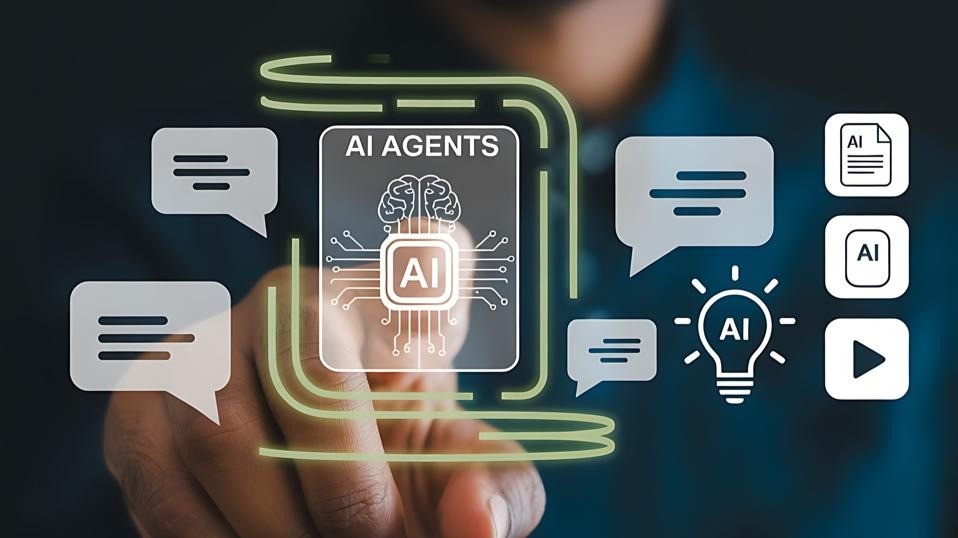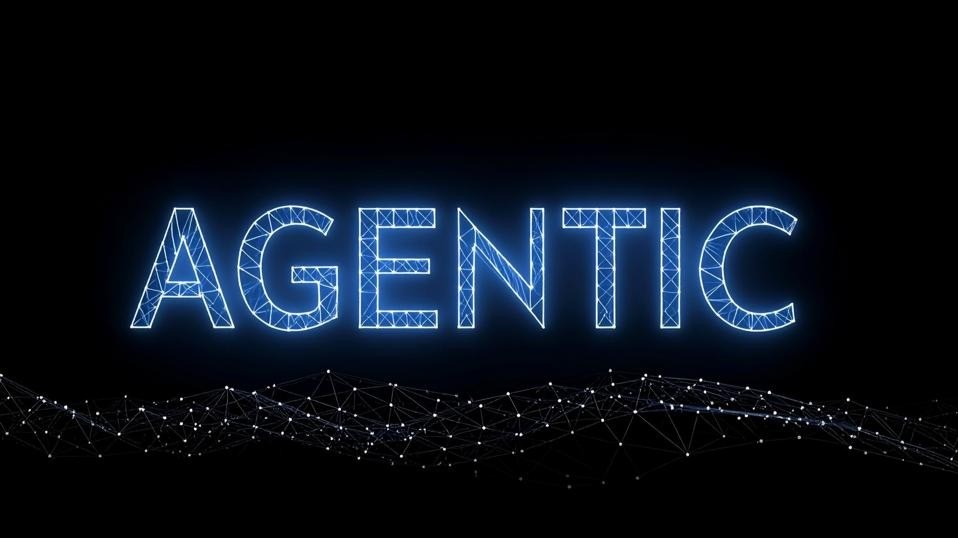How AI And Machine Learning Will Impact The Future Of Healthcare
26 September 2022
Our modern healthcare system is currently facing huge challenges exacerbated by the pandemic, a rise in lifestyle-related diseases, and an exploding world population.
The good news is that using AI to create intelligent processes and workflows could make healthcare cheaper, more effective, more personalized, and more equitable.

Some experts are predicting that the healthcare industry is the sector that could be the most affected by the enormous changes of the fourth industrial revolution.
I recently spoke with Tom Lawry, National Director of AI for Health & Life Sciences at Microsoft, about the future of healthcare. Here are some of his biggest insights and predictions:
Current Challenges in Healthcare
The U.S. currently spends more money on healthcare than any other country in the world, but its individual health outcomes are lower than most other developed nations.
Additionally, clinician burnout is a huge problem, particularly since the pandemic.
Individuals in different generations also want healthcare that is personalized to their needs. Tom says:
“Millennials want to be able to have their healthcare consult from the same place they order their dinner — which is their couch. Meanwhile, you have groups like baby boomers who have a very different approach. They're much more inclined to want to focus on a primary care provider…so we have the ability to go from that one-size-fits-all in care delivery with these systems to using data and AI to truly personalize it, starting with care that's generational. Then even within each generation — millennials, Gen Z, etc. — we have the ability to allow them to access and manage care on their own terms.”
The Big Promise of AI in Healthcare (Examples)
The good news is that most large healthcare organizations are beginning to make use of some form of AI. However, we’re still early in the journey of learning how we can apply artificial intelligence to make healthcare better.
One of the primary use cases is using machine learning and AI to make predictions. Organizations are using AI to predict everything from emergency department volumes (to get a better handle on staffing and triage) to predicting which treatments might be most effective for women who develop breast cancer.
Healthcare teams are also using natural language processing to improve the interpretation of patient scans by augmenting the work of human radiologists. Tom says:
“When a radiologist looks at a scan, they’re typically looking for one thing, which is the reason you have that image done. But many times in the background, there's something else that can be seen. So as radiologists are dictating, natural language processes are being used to call out these secondary issues for follow-up, where previously those things might go unnoticed…so it's a preventive way of trying to get out ahead of a future health problem.”
The biggest promise of AI in healthcare comes from changing clinical workflows. AI can add value by either automating or augmenting the work of clinicians and staff. Many repetitive tasks will become fully automated, and we can also use AI as a tool to help health professionals perform better at their jobs and improve outcomes for patients.
The healthcare organizations that will be the most successful are the ones that will be able to fundamentally rethink and reimagine their workflows and processes and use machine learning and AI to create a truly intelligent health system.
Why We Haven’t Fulfilled the Promise of AI in Healthcare Yet
When I asked Tom why we’re not yet using AI effectively across our entire healthcare system, he said:
“It’s really about leaders understanding the capabilities of AI today, and then looking at how to apply it to add value. The value of AI doesn't come from the technology; it comes from changing clinical workflows and operational processes. AI adds value in only one or two ways: It adds value by automating the way work is done or augmenting the way work is done. Automation means highly repetitive work done by humans today is going to be done by a smart machine today or in the future. But the biggest part of healthcare today is augmentation…the idea of augmentation is, ‘How do we bring AI in behind the humans to make them better at something they care about?’”
According to Tom, senior leaders in the healthcare space don’t necessarily need to understand how AI works — they just need to grasp the power of AI and how it can help them provide personalized care for people more efficiently and compassionately.
For example, the government of Singapore is currently making use of machine learning and deep algorithms to help manage the health of people who are pre-diabetic. The government has mined the data of approximately five million citizens to identify people who are pre-diabetic, and then recruited people to volunteer to be part of a program where they receive personalized daily nudges about what they can do to take charge of their health and lower their blood sugar. This highly personalized advice has been highly successful at slowing participants’ progression from pre-diabetic to diabetic.
Healthcare Workers Have No Reason to Fear AI
AI will impact the work of many people in the healthcare industry, but there’s no need to fear: Machines won’t be replacing healthcare providers anytime soon.
“What artificial intelligence is good at is things like pattern recognition,” Tom says. “It's great at sifting through massive amounts of data to find something that humans either aren't capable of finding or would take years humans to find. On the other hand, humans are great at wisdom, common sense, empathy, and creativity, all of which are vitally important when you think about the care process.”
To be able to adapt to future trends and the integration of AI into the healthcare system, clinicians simply need to become aware of the power of this new technology and understand that the world is changing. Instead of taking over jobs, building an intelligent health system will make clinicians better at what they do, while improving patient experiences.
It’s clearly a win-win all around.
Watch my full interview with Tom Lawry, National Director For AI, Health & Life Sciences at Microsoft here:
Related Articles
AI Agents Are Already Reshaping Business Leadership And Decision Making
By now, “smart” versions exist of just about every home appliance, gadget and gizmos we can think of. However, manufacturers continue[...]
Agentic AI As The New Design Partner
By now, “smart” versions exist of just about every home appliance, gadget and gizmos we can think of. However, manufacturers continue[...]
Invisible Intelligence: Nokia’s Networks With A Sixth Sense
By now, “smart” versions exist of just about every home appliance, gadget and gizmos we can think of. However, manufacturers continue[...]
5 Costly Marketing Technology Mistakes Businesses Will Make In 2025
By now, “smart” versions exist of just about every home appliance, gadget and gizmos we can think of. However, manufacturers continue[...]
5 Costly Customer Data Mistakes Businesses Will Make In 2025
By now, “smart” versions exist of just about every home appliance, gadget and gizmos we can think of. However, manufacturers continue[...]
7 Great AI Hopes That Could Change The World
By now, “smart” versions exist of just about every home appliance, gadget and gizmos we can think of. However, manufacturers continue[...]
Sign up to Stay in Touch!
Bernard Marr is a world-renowned futurist, influencer and thought leader in the fields of business and technology, with a passion for using technology for the good of humanity.
He is a best-selling author of over 20 books, writes a regular column for Forbes and advises and coaches many of the world’s best-known organisations.
He has a combined following of 4 million people across his social media channels and newsletters and was ranked by LinkedIn as one of the top 5 business influencers in the world.
Bernard’s latest book is ‘Generative AI in Practice’.










Social Media